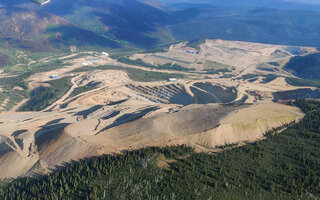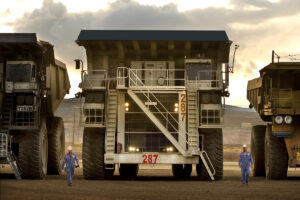Victoria Gold Corp. July 12 announced significant updates regarding the ongoing environmental and operational challenges following the heap leach facility incident at its Eagle Gold Mine in Yukon, Canada.On June 24, Victoria Gold reported a collapse of the heap leach facility embankment at its Eagle Gold Mine, later detailed as a multi-bench failure that resulted in a slide of ore material saturated with cyanide down the hillside. The company immediately began constructing containment dams, installing diversion systems to manage both non-contact and contact water, and setting up pumping systems to return contaminated water to lined containment ponds.For a comprehensive timeline of events in the weeks after the heap leach failure, read Yukon issues directives for Eagle Mine in the July 12 edition of North of 60 Mining News.In addition to the investigations being carried out by the Yukon government and First Nation of Na-Cho Nyäk Dun, Victoria Gold began its own studies, including the daily collection of water samples from multiple locations.On July 2, a sample from Haggart Creek detected 5.7 parts per billion (0.0057 milligrams per liter or 0.0057 parts per million) of cyanide, but subsequent tests on July 3 and 4 showed no further traces, reassuring the company that it had not breached its Downstream Water Quality Objectives under its Water Use License.This aligns with the Yukon government’s findings. While a sample taken from material at the bottom of the slide at the mine contained 8.58 mg per liter (8.58 ppm) of cyanide, significantly exceeding the permitted level, another sample from Haggart Creek, the primary concern, indicated a cyanide presence of 0.04 mg per liter (0.04 ppm).In response, Yukon’s Chief Medical Officer of Health, Sudit Ranade, advised the public to avoid the creek and refrain from recreational use of its water as a precaution. Tests from the regulated drinking water system downstream, however, showed no cyanide presence.Infrastructure assessmentAs Victoria Gold continues to address the aftermath of the heap leach pad incident, detailed assessments of the site have been conducted. Since the start of production, the company estimates approximately 38.9 million metric tons of ore have been stacked on the heap leach facility.An independent survey estimates that about 4 million metric tons of ore, or roughly 10% of the total, moved during the incident. Of this, around 2 million metric tons, representing 5% of the total ore, moved beyond the embankment. The company has developed a stabilization plan for the remaining pad, currently under review by an independent third party.Fortunately, the majority of the on-site infrastructure remained unaffected by the incident. Key components such as the Eagle open pit, associated mining infrastructure and mobile equipment, primary crusher, secondary and tertiary crushers, main overland conveyor, ADR (Adsorption, Desorption, and Recovery) plant, lined water containment ponds, water treatment plant, warehouse facilities, and camp and office complex were not impacted. The affected infrastructure includes the heap leach embankment, piping, pumping, liner, two short lengths of fixed conveyors, and a small amount of electrical infrastructure. Victoria Gold Corp. Aerial view of Eagle Gold mine showing the extent of the June 24 HLF incident outlined in yellow.Root cause analysisWhile the direct cause of the collapse has yet to be determined, investigations are underway. Victoria Gold has engaged its engineer of record for the heap leach facility and is cooperating with third-party technical experts retained by the Yukon Government and the First Nation of Na-Cho Nyäk Dun to thoroughly assess the incident, identify underlying causes, and develop a comprehensive plan to prevent future occurrences.Production operations at the Eagle Gold Mine remain suspended and may not restart without authorization from the Yukon Director of Mineral Resources. Victoria Gold says it is committed to minimizing environmental impacts and ensuring the safety of its employees. However, the company acknowledges that there is no assurance it will receive the necessary authorizations to restart production. Additionally, there are concerns about whether Victoria Gold will have the financial resources required to repair the damaged equipment and facilities, remediate the environmental impacts, or resume production. The company has pledged to provide further updates as the situation develops.
This article was published by:
Visit the original article here

Dryden gold mine builder wants to add more ounces
Reading Time: 4 minutesTreasury Metals president-CEO Jeremy Wyeth feels the Goliath Gold Complex outside Dryden is being a


